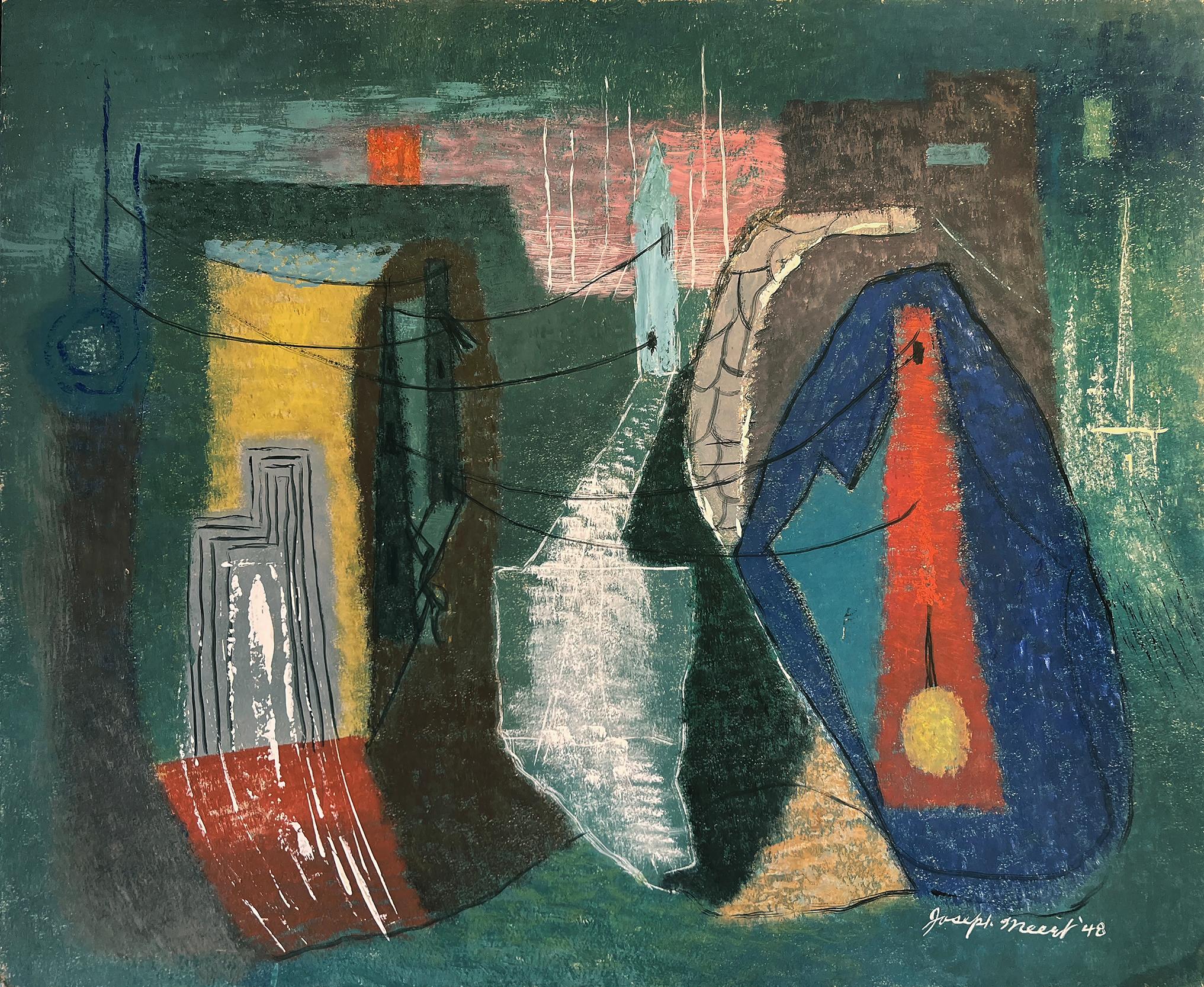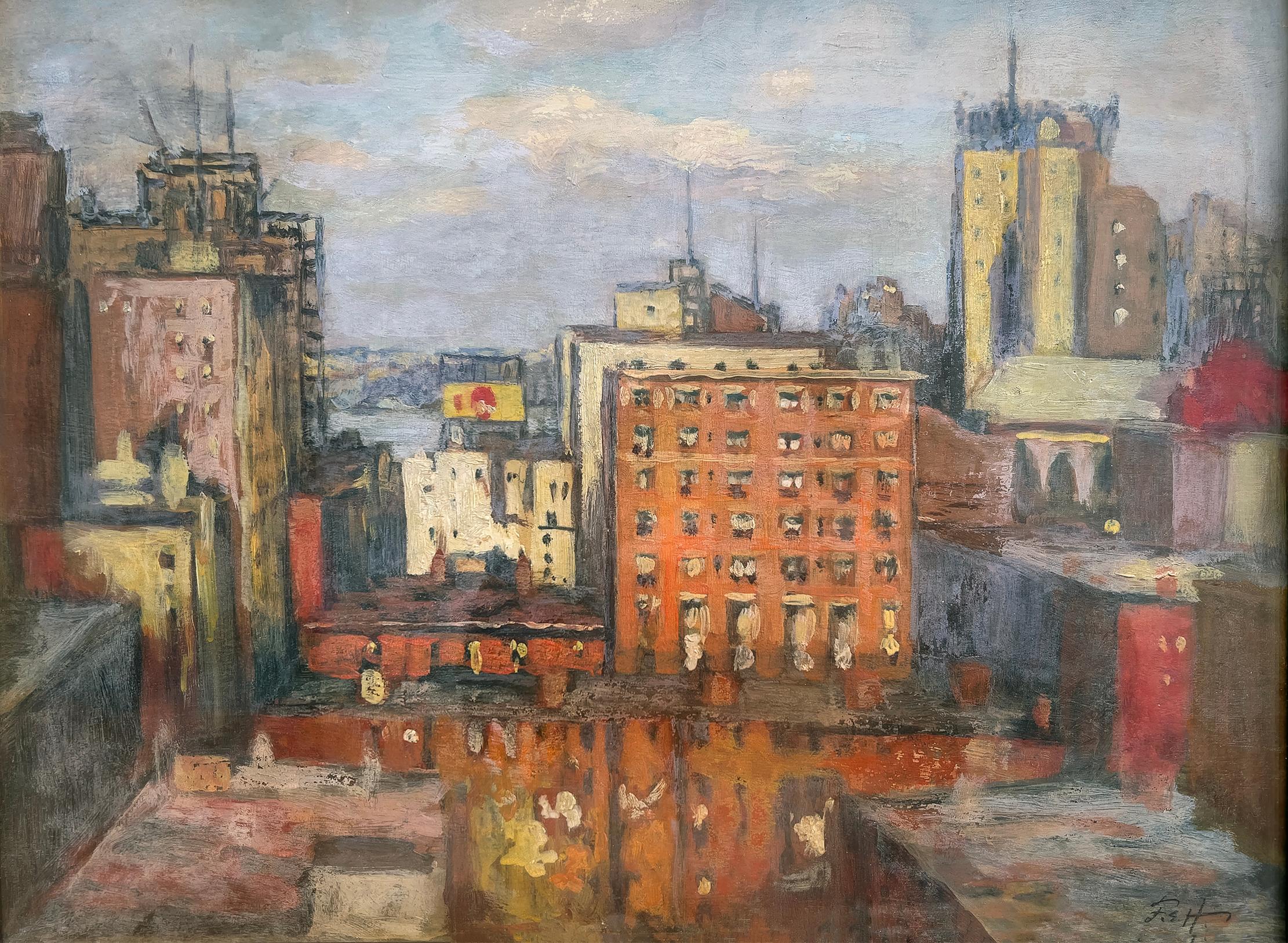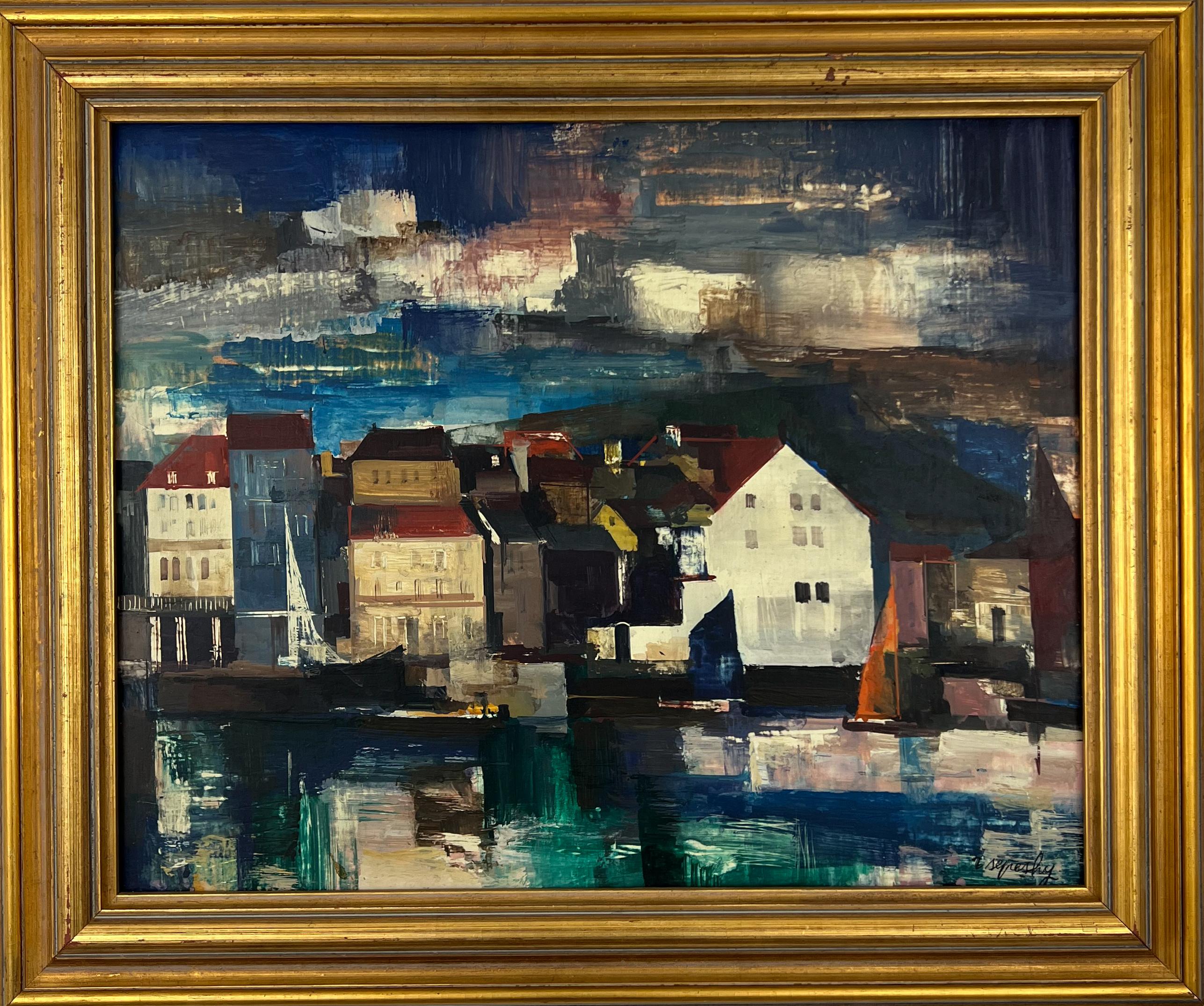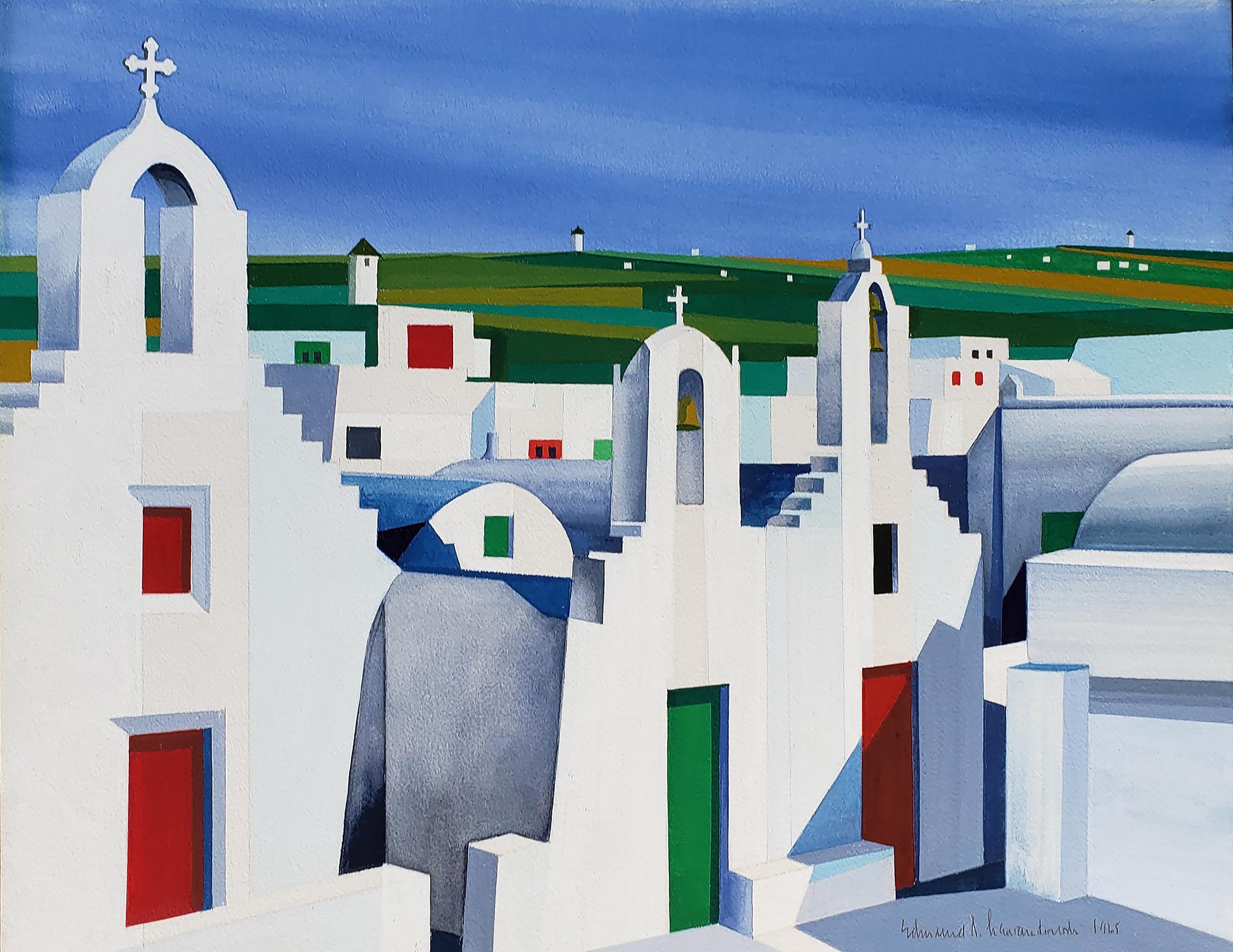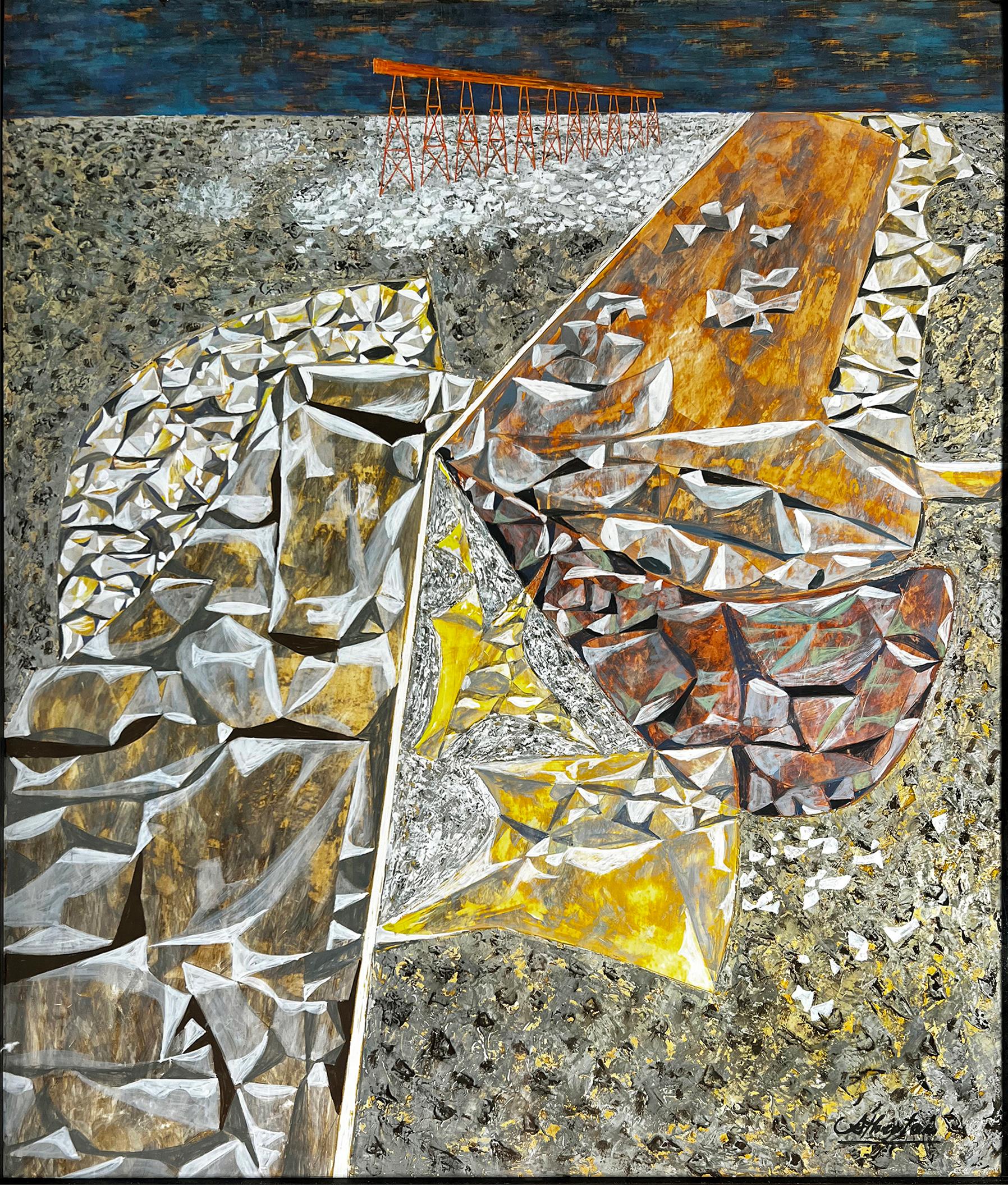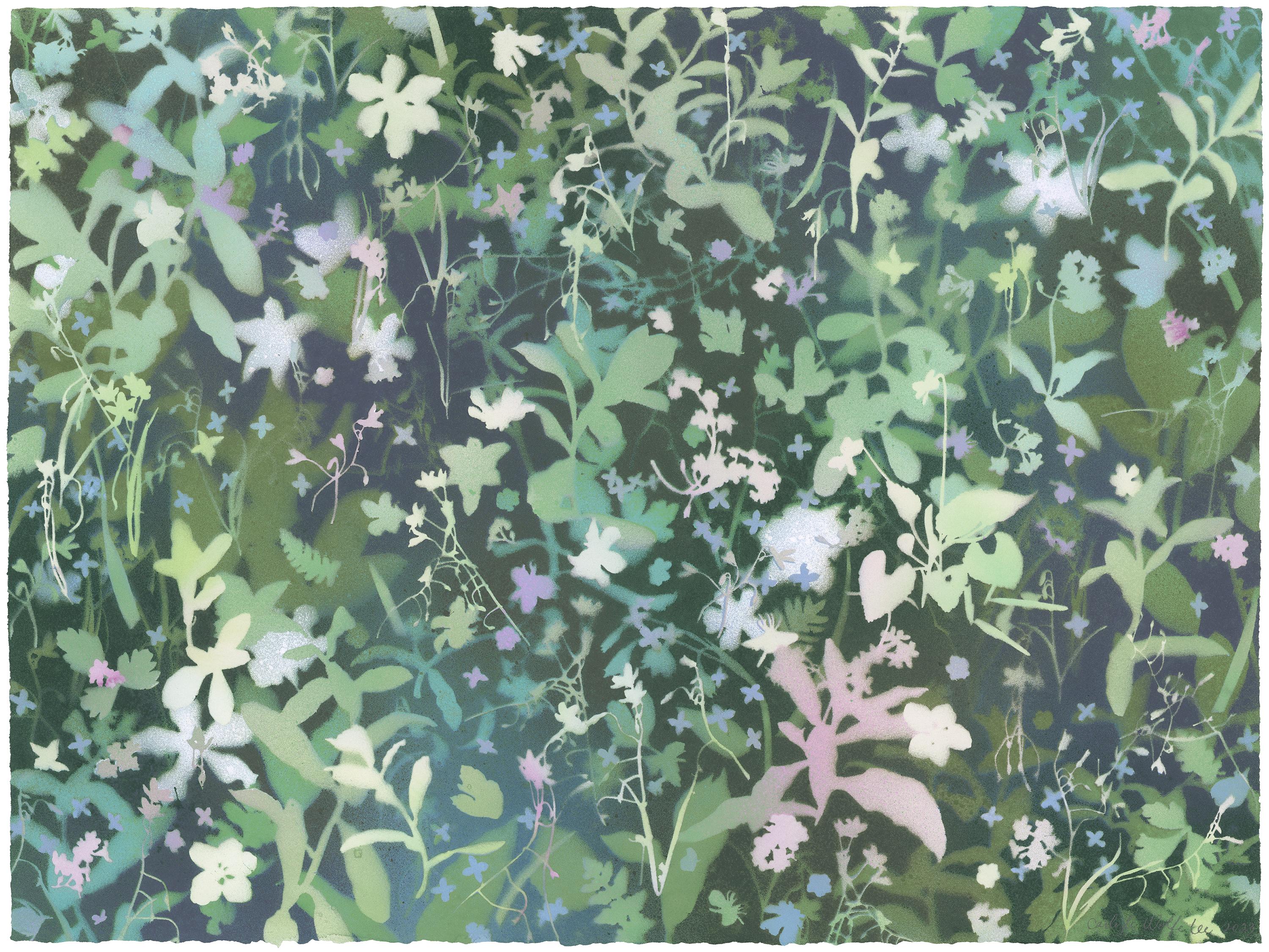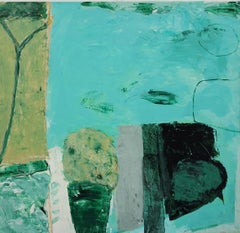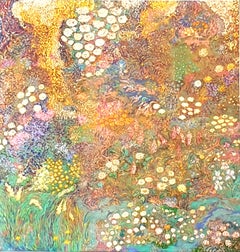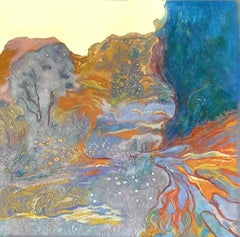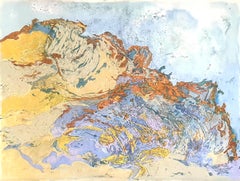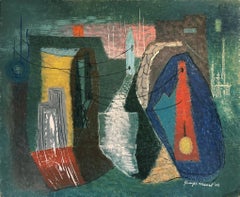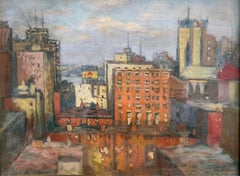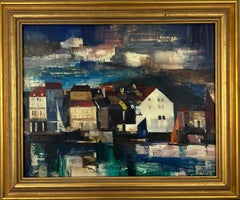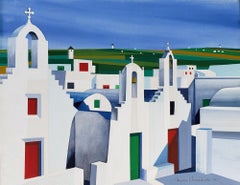Items Similar to Late 20th Century French Impressionist Gouache, 'Les Baux de Provence'.
Want more images or videos?
Request additional images or videos from the seller
1 of 17
Désiré VillainLate 20th Century French Impressionist Gouache, 'Les Baux de Provence'.1995
1995
About the Item
Late 20th century impressionist gouache landscape of "Les Baux de Provence" on paper by French artist Désiré Villain, signed bottom left and to the reverse and dated 1995 with title, presented under glass in a fine wooden gold frame.
His work is summed up in these few sentences written by the painter Roger BISSIERE :
“The paintings are what they are, They will touch you or leave you indifferent.
In the first case, I will have won since some fraternal hands will be extended to me.
On the contrary, I will have lost, if the colours and shapes that I have assembled do not touch your heart. "
Born in Coquainviller in 1925, near Lisieux, he found his vocation very early on through his father, a talented watercolourist. He completed his training by attending workshops, including that of Antonio LAMOLLA, a great friend of Maurice VLAMINCK.
He draws his inspiration from his “ large outdoor workshop ” which is nature. For Désiré VILLAIN, landscapes, still lifes and portraits are born from light. His painting is the fruit of a long process, very spread out over time, the superposition of successive glazes is only a pretext to suggest subjects through the sensations that his vision gives him.
Désiré VILLAIN demonstrates with his brush that he has understood that a painting is above all a ' new space ' born from the act of painting and not that of the simple desire to represent things. Showing the subject's undiscovered side, the one that can only be seen with the eyes of the soul.
Désiré was 'Guest of Honour' at the 29 th Castelnaudary Salon.
'Désiré VILLAIN has always been prey
to a pictorial language all his own. A language
outside of fashions and ephemeral procedures
suitable to satisfy both the 'honest man'
and the simpler. He indeed considers
that painting must be endowed
with a universal discourse.' JL April
- Creator:Désiré Villain
- Creation Year:1995
- Dimensions:Height: 14.18 in (36 cm)Width: 17.52 in (44.5 cm)Depth: 1.19 in (3 cm)
- Medium:
- Period:
- Condition:
- Gallery Location:Cotignac, FR
- Reference Number:Seller: GB/Villain/LesBaux.1stDibs: LU143029060152
About the Seller
5.0
Platinum Seller
Premium sellers with a 4.7+ rating and 24-hour response times
Established in 2000
1stDibs seller since 2020
239 sales on 1stDibs
Typical response time: 1 hour
- ShippingRetrieving quote...Shipping from: Cotignac, France
- Return Policy
Authenticity Guarantee
In the unlikely event there’s an issue with an item’s authenticity, contact us within 1 year for a full refund. DetailsMoney-Back Guarantee
If your item is not as described, is damaged in transit, or does not arrive, contact us within 7 days for a full refund. Details24-Hour Cancellation
You have a 24-hour grace period in which to reconsider your purchase, with no questions asked.Vetted Professional Sellers
Our world-class sellers must adhere to strict standards for service and quality, maintaining the integrity of our listings.Price-Match Guarantee
If you find that a seller listed the same item for a lower price elsewhere, we’ll match it.Trusted Global Delivery
Our best-in-class carrier network provides specialized shipping options worldwide, including custom delivery.More From This Seller
View AllContemporary Abstract Expressionist Color-Field Landscape, Les Champs VI
Located in Cotignac, FR
A contemporary Abstract Expressionist Color-Field acrylic on canvas by French artist, Christian Manoury. Signed to the back of the canvas.
Inspired by the wonderful countryside surr...
Category
21st Century and Contemporary Expressionist Abstract Paintings
Materials
Paper, Acrylic
'Garden in Full Bloom', Impressionist Pointillist Pastel.
Located in Cotignac, FR
Contemporary impressionist pastel of a garden in full bloom by Belgian artist Francis Besson. Signed to the very bottom left and to the backboard. Presented in a plain contemporary f...
Category
21st Century and Contemporary Landscape Paintings
Materials
Paper, Pastel
French Impressionist Pointillist Pastel. 'La Garrigue', Provence.
Located in Cotignac, FR
Contemporary Impressionist pastel of a Provençal landscape by Belgian artist Francis Besson. Signed to the very bottom right.
A whirl of colours and floral designs shape this gorge...
Category
21st Century and Contemporary Contemporary Landscape Paintings
Materials
Paper, Pastel
French Impressionist Pointillist Pastel, 'La Vague' (The Wave).
Located in Cotignac, FR
Contemporary Impressionist pastel of a landscape by French/Belgian artist Francis Besson. Signed to the very bottom right.
A whirl of colours and designs shape this gorgeously sump...
Category
21st Century and Contemporary Contemporary Landscape Paintings
Materials
Paper, Pastel
'Forest in the Fall', Contemporary Impressionist Pastel, Homage to Gustave Klimt
Located in Cotignac, FR
Contemporary Impressionist pastel of an autumnal woodland scene by Belgian artist Francis Besson. Signed to the very bottom right and presented in a simple gold contemporary frame un...
Category
21st Century and Contemporary Tonalist Landscape Paintings
Materials
Pastel, Paper
Intermezzo 8. Contemporary Abstract Color-Field Landscape. Oil on Canvas.
Located in Cotignac, FR
A contemporary abstract geometric colour field landscape in oil on canvas by Dutch artist Bernadette Van Baarsen. Signed bottom right and signed, dated and titled to the reverse.
H...
Category
21st Century and Contemporary Other Art Style Abstract Paintings
Materials
Canvas, Oil
You May Also Like
City Scape Abstract Expressionist Composition -Jackson Pollack Friend
By Joseph Meert
Located in Miami, FL
The fame, notoriety, and monetary value of an artist's work in today's market are not based on one's talent and vision. Factors such as marketing and media momentum play a defining r...
Category
1940s Abstract Expressionist Abstract Paintings
Materials
Gouache, Board
New York Skyline the West Side with Hudson River - Vintage New York
By Frank S. Hermann
Located in Miami, FL
Rooftop view of the upper West Side Manhattan as it looked in the 1930s. There is a rough indication of a billboard and a glimpse of the Hudson River. The cluster of buildings depic...
Category
1930s American Impressionist Landscape Paintings
Materials
Oil, Gouache, Board
Seashore Town- Mid-Century Modernist Gouache and Oil Painting
Located in Marco Island, FL
A dramatic painting of a seaside town done in bright colors. The abstract American scene style captures the moody sky, and the reflection of water captures the viewer's attention.
...
Category
Mid-20th Century Landscape Paintings
Materials
Oil, Gouache, Board
Mykonos Church Landscape
By Edmund Lewandowski
Located in Miami, FL
A vibrant example of the artist's precisionist style where a tight semi-abstract geometric composition is inspired by architecture and is reduced to simplified geometric shapes with...
Category
1960s Abstract Geometric Landscape Paintings
Materials
Gouache, Board
$11,200 Sale Price
20% Off
Thought Provoking Rock Quarry - Mid Century Abstract
Located in Miami, FL
This meticulously planned, designed, and executed work depicts an ultra-wide angle view of a rock quarry/mine. The viewer looks down at close-up-stylized rock formations and then out at a horizon line with rust-colored mine trestles. Atherton hints at perspective with a broken white line that is wider in the foreground and tapers to a hairline as it recedes to the background. The work was done in 1951 at the height of America's most important art movement: Abstract Expressionism. John Atherton absorbs its influences but retains elements of representation. Atherton was an in-demand commercial artist who worked for most blue-chip clients. It is possible that this was an editorial assignment for Fortune Magazine. At the same time, Atherton was also a fine artist and the work could be an expression of pure creative pursuits. The work looks better in person and one can look at it for hours and not get bored. Look carefully and you may discover a deeper meaning in this painting of precisely arranged rocks. Signed lower right.
Brooklyn Museum of Art, New York, sold to benefit the acquisitions program
____________________
From Wikipedia, the free encyclopedia
John Carlton Atherton (January 7, 1900 - September 16, 1952) was an American painter and magazine illustrator, writer and designer. His works form part of numerous collections, including the Museum of Modern Art,[1] Whitney Museum of American Art and the Smithsonian American Art Museum.[2][3][4]
Early Years
He was the son of James Chester Atherton (1868-1928) and Carrie B. Martin (1871-1909). He was born in Brainerd, Minnesota.[5] His father was Canadian born. His parents relocated from Minnesota to Washington State, with his maternal grandparents whilst he was still an infant. He attended high school in Spokane, Washington.
Career
During his early years he never displayed an aptitude for art; rather, his first love being nature and the activities he relished there, mainly fishing and hunting. He enlisted in 1917, serving briefly in the U.S. Navy for a year during World War I. At the end of the war, determined to get an education he worked various part-time jobs, as a sign painter and playing a banjo in a dance band to pay his enrolment fee at the College of the Pacific and The California School of Fine Arts (now the San Francisco Art Institute). Once there, he also worked in the surrounding studios developing his oil painting techniques.
A first prize award of $500 at the annual exhibition of the Bohemian Club in 1929, financed his one way trip to New York City, which helped to launch his career as an artist.[6]
Atherton had aspired to be a fine artist, however his first paid jobs were for commercial art firms designing advertisements for corporations such as General Motors, Shell Oil, Container Corporation of America, and Dole. However, by 1936, encouraged primarily by friends, such as Alexander Brook, an acclaimed New York realist painter, he returned to the fine arts.
Atherton continued to accept numerous commissions for magazine illustrations; such as Fortune magazine, and over the years he would paint more than forty covers for The Saturday Evening Post starting with his December 1942 design, “Patient Dog.” This picture is reminiscent of his friend Norman Rockwell ‘Americana style’ and captures a poignant moment of nostalgia, where a loyal dog looks toward a wall of hunting equipment and a framed picture of his owner in military uniform.
Selected One person Exhibitions
Atherton accomplished his first one-man show in Manhattan in 1936. His Painting, “The Black Horse” won the $3000 fourth prize from among a pool of 14,000 entries. This painting forms part of the Metropolitan Museum of Art collection in New York.[7]
Atherton achieved recognition in New York City and elsewhere during the 1930s. Having exhibited at the Julien Levy Gallery in New York,[8] his paintings began to be collected by museums; including the Museum of Modern Art[9] and the Metropolitan Museum of Art.
His reputation increased with his art deco stone lithograph poster for the 1939 New York World's Fair. In 1941, his design won first place in the Museum of Modern Arts “National Defense Poster Competition”.
Selected Public Collections
Fleming Museum of Art, Burlington, Vermont
Albright-Knox Art Gallery,[10] Buffalo, NY
Art Institute of Chicago,[11] Chicago
Wadsworth Atheneum,[12] Hartford, CT
Brooklyn Museum of Art, New York
Metropolitan Museum of Art, New York
The Museum of Modern Art,[13] New York
Whitney Museum of American Art,[14] New York
Pennsylvania Academy of the Fine Arts,[15] Philadelphia
De Young Museum,[16] San Francisco
Smithsonian American Art Museum,[17] Washington DC
Butler Institute of American Art[18] Youngstown, OH
The Famous Artists School
Founded in 1948 in Westport, Connecticut, U.S.A. The idea was conceived by members of the New York Society of Illustrators (SOI), but due to the Society's legal status, could not be operated by it. SOI member Albert Dorne led the initiative to set up a separate entity, and recruited the support of Norman Rockwell, who was also an SOI member. For the founding faculty, Dorne recruited Atherton, as well as accomplished artists such as Austin Briggs, Stevan Dohanos, Robert Fawcett, Peter Helck, Fred Ludekens, Al Parker, Norman Rockwell, Ben Stahl, Harold von Schmidt and Jon Whitcomb.[19]
He collaborated with Jon Whitcomb with the book “How I Make a Picture: Lesson 1-9, Parts 1”.[20][21]
Society of Illustrators
Atherton as an active member from his arrival in New York. The society have owned many of his works. Ex-collection includes:
Rocking Horse (ca. 1949) [22]
Atherton, as his peers had many of his works framed by Henry Heydenryk Jr.[23]
Personal
On November 2, 1926, he married Polly “Maxine” Breese (1903-1997).[24][25] They had one daughter, Mary Atherton, born in 1932.
Atherton's often chose industrial landscapes, however found himself spending considerable time in Westport, Connecticut, with an active artistic community, and it became home for him, and his family. He then moved to Arlington, Vermont.[26]
Norman Rockwell enlisted Atherton in what was to be the only collaborative painting in his career.[27]
He was part of a group of artists including a Norman Rockwell, Mead Schaeffer and George Hughes who established residences in Arlington.[28] Atherton and Mead Schaeffer were avid fly fishermen and they carefully chose the location for the group,[29] conveniently located near the legendary Battenkill River.
In his free time, Atherton continued to enjoy fly-fishing.[30] He brought his artistic talent into the field of fishing,[31] when he wrote and illustrated the fishing classic, “The Fly and The Fish”.[32]
He died in New Brunswick, Canada in 1952,[33] at the age of 52 in a drowning accident while fly-fishing.[34]
Legacy
The Western Connecticut State University holds an extensive archive on this artist.[35]
His wife, Maxine also published a memoir “The Fly Fisher and the River” [36] She married Watson Wyckoff in 1960.
Ancestry
He is a direct descendant of James Atherton,[37][38] one of the First Settlers of New England; who arrived in Dorchester, Massachusetts in the 1630s.
His direct ancestor, Benjamin Atherton was from Colonial Massachusetts...
Category
1950s Abstract Expressionist Abstract Paintings
Materials
Mixed Media, Gouache, Board
'Spring Beauties" - naturalist landscape, colorful, botanical, layered
By Carlyle Wolfe Lee
Located in Atlanta, GA
"Spring Beauties" is an abstract landscape featuring hues of green, purple and blue. This work is framed in a simple white frame behind Museum Glass measuring 28 by 36 inches.
Carlyle is inspired by the works of Claude Monet, Edouard Vuillard, Henri Matisse, Walter Inglis Anderson, Charles Burchfield, Ellsworth Kelly, Alexander Calder and Mary Delany.
This piece is part of a collaborative series by Carlyle and her husband Thad Lee. This body of work was made in tandem, through painting and photography, that explores their mutual delight in the natural world and within their own marriage.
Carlyle Wolfe’s paintings & works on paper are about an awareness of the natural world—becoming progressively, cyclically more present to its rhythms, gaining deeper understanding of its design, & acquiring direct experiential knowledge of its mysterious beauty. For the last 15 years, Wolfe has been making contour line drawings of plants form observation. From her drawings, she isolates silhouettes into paper stencils which she uses to create oil paintings & works on paper – or cut out of metal to make sculptures. Her work is cumulative in nature – gradually marking time & seasonal change, unity & variety, individual & collective beauty.
Wolfe grew up in Canton, Mississippi, & earned a BFA in painting from the University of Mississippi & an MFA in painting & drawing from Louisiana State University. She has also studied in Cortona, Italy, & at the University of Georgia. Wolfe has exhibited work throughout the South, including Spalding...
Category
2010s Contemporary Abstract Paintings
Materials
Gouache, Archival Paper
Recently Viewed
View AllMore Ways To Browse
French Wooden Board
Gold Side Board
Roger Bissiere
Paris Folies
Portraits 20th Century Matisse Style
Roman Cardinal
Solace London
Steinberg Print Signed
Suzanne Somers
The Cellist
Vintage Fashion Posters
White Screen Divider
Wood Nymph
Zao Wou Ki Signed
Alan Mirror
Barbara Wood Signed Print
Black And White Kids Photograph
Blue Vintage Radio
